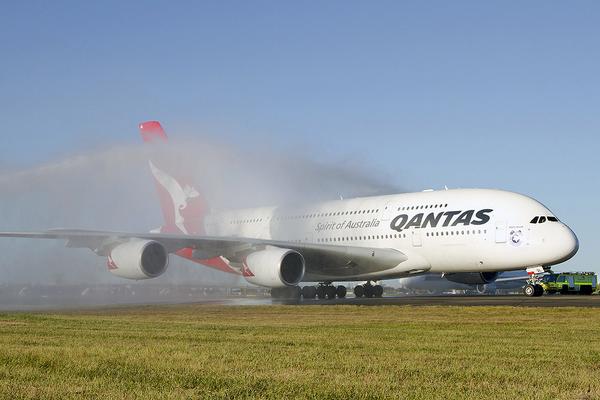


Aviation firefighters at major Australian airports will walk off the job on April 15 amid revelations many of the nation’s airports, are ill-equipped to handle emergencies as the union claims that a shortage of aviation fire and rescue firefighters is putting air passengers at risk.
United Firefighters Union Australia (UFUA) says it has leaked documents from employer Airservices Australia showing an "extreme risk" at 13 airports, and "high risk" at 14 others.
Leaked risk assessments carried out by Airservices Australia reveal that Brisbane, Melbourne, Perth and Adelaide airports were found to be at extreme risk if there was a fire or aircraft incident because of a lack of firefighting resources.
Major airports like Sydney, Canberra and Hobart were deemed a “high risk” handling emergencies.
The leaked internal documents were revealed by the United Firefighters Union of Australia which has warned that its members will conduct a four-hour strike from 6am on April 15 as a result of safety concerns for the public.
The planned work stoppage is due to affect 27 airports around the country and run for 4 hours from 6am.
The action threatens to disrupt school holiday travel plans as students in New South Wales, South Australia, Tasmania and the Northern Territory begin their two-week term break and those in other states return to begin term two.
While the risk assessments were carried out between 2021 and 2022, the union believes the problems remain to this day.
Union secretary Wes Garrett said Airservices Australia had known of the risk to travellers for two years, given the internal documents, but has publicly denied there are aviation firefighting shortages at airports.
“These leaked documents confirm that Australia’s air travellers face a dire risk every time they set foot on an aircraft in Australia,” Mr Garrett said on Tuesday.
"At 13 major airports across Australia, including Brisbane, Melbourne, Perth and Adelaide, the leaked documents confirm that air travellers face extreme risk."
“Clearly, this significant and ongoing risk to all Australian air travellers is unacceptable and cannot be allowed to continue.”
The documents show that travellers at 13 airports including Brisbane, Melbourne, Perth and Adelaide were at an “extreme risk” which included a shortage of trucks, both frontline and ground control staff, equipment and procedures.
The documents show the risk assessments evaluate the minimum number of firefighting staff required to manage worst case scenarios with four categories of risk: Low, medium, high and extreme.
"These resource shortages include a lack of key personnel to operate breathing apparatus, shortages of firefighting agents to suppress multiple incidents, insufficient personnel and vehicles to protect both sides of a crashed aircraft, a lack of personnel for effective fire ground command and control, and a lack of procedural control at Australia's airports."
The Aviation firefighters union is also seeking a 20 per cent pay increase over three years, while Airservices Australia has offered 11.2 per cent over three years.
Airservices Australia said the union's action was motivated by its bid for a pay rise as part of the ongoing employment agreement negotiations.
In a statement, Airservices Australia said the dispute had "nothing to do with staffing levels" which were sufficient to meet operational requirements. It added that the TRAs "do not measure current state operational risk".
"The risk assessments included in the TRA process are based on theoretical scenarios that do not account for the likelihood of an event occurring or reflect the current operational environment," the statement said.
The UFUA union now calls for changes to the enterprise agreement with Airservices to include new clauses including minimum staffing requirements, set work hours and rostering and changes to meet work health and safety regulations.
“We call on Airservices to return to the bargaining table to address these critical concerns about the safety of Australia’s air travellers,” Mr Garrett said.
According to Airservices Australia, the union's bargaining claims would cost the aviation industry and passengers an extra $128 million.
Airservices Australia also added that it would work with the airlines and airports to maintain safe operations and minimise any impact on the travelling public during the planned work stoppage.
Display Picture Courtesy : Andrew Heslop
